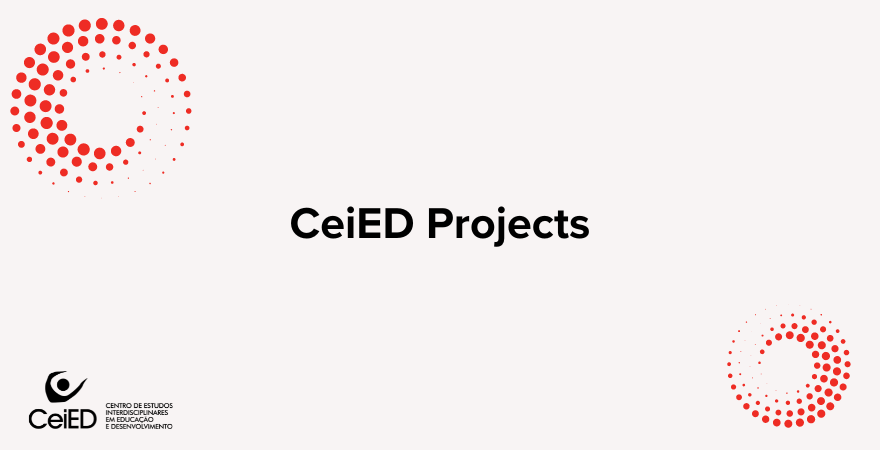Projects
Domestic violence: a multidisciplinary reflection beyond crime
Domestic violence remains a particularly serious social problem, not only in Portugal but also elsewhere. It is a complex phenomenon, with devastating consequences for victims and their families, and its multifaceted causes are difficult to grasp even with the most accurate criminological analysis. The main objective is to align the diversity of scientific and theoretical debates with a focus on prevention that is sufficiently open to the serious and definitive integration of a new component in the complex equation of the problem of domestic violence: the role of education in fostering a culture of citizenship and respect for fundamental human rights. To this end, knowledge from psychology, social sciences, and educational sciences, as well as its intersection with legal-penal knowledge, will be crucial for synergy capable of contributing to more appropriate public policies.
The project includes a study segment in the field of educational sciences. It is known that education occurs in different spaces, forms, and modalities. School is a space for the development of formal and informal education, where individual and social identities are constructed, principles and experiences are shared, and individual and collective stories are created. The educational community both supports and contradicts the paradigms and values shared by all involved parties. In this context, and given that domestic violence continues to be a reality in society, schools play a fundamental role in raising awareness and educating against this social scourge. Therefore, it becomes urgent that all participants in the educational community are knowledgeable not only about the problem but also about the social, criminal, and educational policies and actions that promote social justice.
In this context, one of the tasks planned in the primary prevention component is the case study in school clusters (one in Lisbon and another in Porto). The Lisbon School Cluster does not have an autonomous Project against Domestic Violence, unlike the Porto School Cluster.
Objectives
- The study, from a legal-dogmatic perspective, will examine the major strategies of the legal system and the protective framework offered by Article 152 of the Penal Code, which criminalizes domestic violence. Specifically, the parameters of unlawfulness and punishability will be analyzed, as well as the criteria for identifying the constitutionally protected legal interest, with the identification of the protected individuals and the situations in which they find this protection. Furthermore, potential gaps in the provision in question will be examined within the framework of preventive protection and assistance brought by Law No. 112/2009, of September 16, potentially benefiting those who are still unprotected under that normative discipline.
- The study, from a psychosocial perspective, will focus on the empirical effectiveness of this protective framework, identifying its deficits, considering psychological states as elements that trigger acts of domestic violence, suggesting a normalization of these states, with consequences for the high degree of recidivism. In this context, the challenges arising in risk assessment and control processes will be addressed, discussing the methodological role of static and dynamic risk factors in a holistic, integrative, and multidisciplinary approach, including clinical, forensic, psychological, and social aspects related to the interpersonal dynamics of victims, perpetrators, and family members. Additionally, the possibility of applying other mechanisms to support the judicial system in exceptional situations that may allow for the rehabilitation of the perpetrator will be analyzed, with a broader intentionality aimed at restoring social peace, particularly in less severe cases, while acknowledging that the specific phenomenology of domestic violence may be incompatible with this hypothesis.
- The study, from an educational perspective, will examine the role of pedagogical practices in deepening the themes of non-violence, gender equality, and human rights in socio-educational terms, as a learning process for autonomy and responsibility, aiming to improve preventive solution alternatives. To achieve this, the role of educational practices will be defined as a fundamental civic axis for the formation of values consistent with respect for human dignity, personality self-determination, and physical and moral integrity, with a direct impact on the primary prevention of domestic violence. At the national and educational policy level, human rights and gender equality are themes included in the National Strategy for Education for Citizenship (ENEC, 2021), which is considered a privileged curricular space for the development of learning with an impact on individual civic attitudes, interpersonal relationships, and social and intercultural relationships. Human rights and gender equality are addressed mandatorily at all levels of education, from primary to secondary education. Currently, there is a national educational campaign underway for primary prevention on the central theme of the research project.
Finally, these three thematic axes converge on the main objective of verifying the practical limits of control and prevention instruments for acts of domestic violence, with the ultimate concern of mitigating the transgenerational aggression effects to which victims, particularly women and children subject to interparental psychosocial violence, are exposed.
Research Team
- José de Faria Costa (PI) - Centro de Estudos Avançados em Direito, Universidade Lusófona
- Alcina de Oliveira Martins
- Elisabete Pinto da Costa
- Maria Cunha Louro
- Bruno de Oliveira Moura
- Rita Domingos

- Período Date
11.2022 - 03.2024 - Financiamento Funding
FAZER+ - ILIND - Referência do Projeto Project Reference
FAZER+/ILIND/CEAD/2/20222


